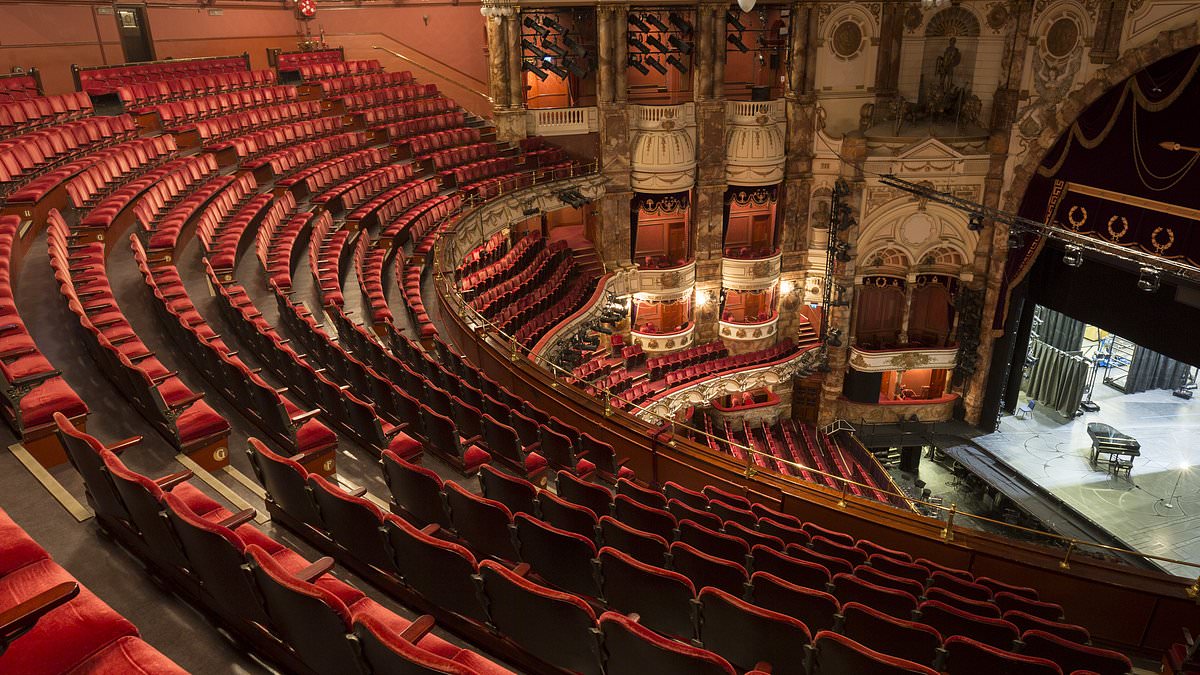It’s typically the chance for theatregoers to enjoy an ice cream, glass of wine or visit the bathroom.
But the interval may soon be a thing of the past as producers drop it in favour of ‘immersive’ experiences.
More and more shows are being staged across London without breaks – from Slave Play at the Noel Coward to The Years at the Almeida.
James Rowson, a lecturer in theatre and cultural policy at the Royal Central School of Speech and Drama, in London, said it was a surprising development given that revenue from bar sales is a vital source of income for most theatres.
Mr Rowson said the shift could be a hangover from the pandemic, when many people fell out of the habit of attending the theatre.
‘It could well be that by staging productions without intervals and cutting running times, theatres are attempting to win back hesitant members of the public and establish a new generation of theatregoers,’ he told The Guardian.
The Globe has taken a more relaxed approach to intervals after lockdown. Its artistic director, Michelle Terry, said Shakespeare’s plays were ‘never written with intervals, so we won’t play them with interval’.
Among the upcoming shows without an interval is A Chorus Line which has a running time of one hour and 55 minutes and Macbeth, with David Tennant and Cush Jumbo, running time one hour 50 minutes, in which the audience are given 3D headphones to amplify the dialogue.
The Guardian’s chief theatre critic, Arifa Akbar said no-interval shows were ‘fast and furious’ and appeal to a younger generation.
The theatre producer Kenny Wax, who has two musicals playing in London without intervals, Six (Vaudeville Theatre) and Fantastically Great Women Who Changed the World (The Other Palace), said the decision was an artistic one.
He told The Guardian: ‘In the case of both of those productions, which have a running time around the 80- to 85-minute mark, it would slow down the momentum of the journey and there isn’t really a natural place for a break.’ However some theatregoers have complained about attending shows where their viewing experience has been disrupted by other people’s constant trips to the bathroom.
Mark Hutchings, the author of Approaching the Interval in Early Modern Theatre, said that historically intervals provided the opportunity to put on entertainment such as music and dancing.
